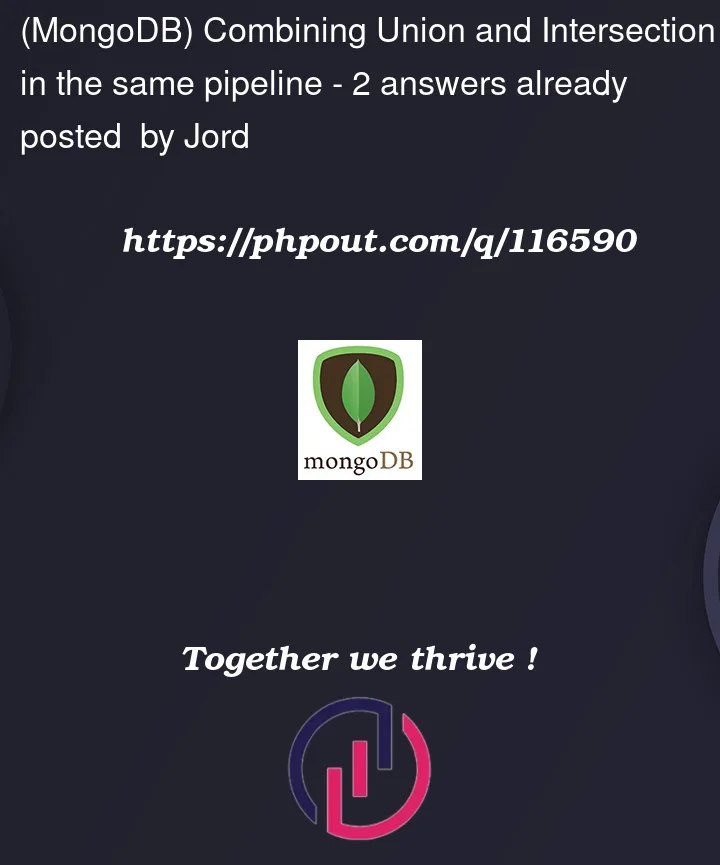I have the following aggregation pipeline running in the latest version of mongoDB and pymongo:
[
{
"$project": {
"union": {
"$setUnion": [
"$query_a",
"$query_b"
]
}
}
},
{
"$unwind": "$union"
},
{
"$group": {
"_id": "$union.ID",
"date_a": {
"$addToSet": "$union.date_a"
},
"date_b": {
"$addToSet": "$union.date_b"
}
}
},
{
"$unwind": "$date_a"
},
{
"$unwind": "$date_b"
},
{
"$project": {
"_id": 1,
"date_a": "$date_a",
"date_b": "date_b",
"diff": {
"$subtract": [
{
"$toInt": "$date_b"
},
{
"$toInt": "$date_a"
}
]
}
}
},
{
"$match": {
"diff": {
"$gt": 0,
"$lte": 20
}
}
},
]
This gives the union of the 2 pipelines query_a and query_b. After this union I want to get an intersection on ID with the pipeline query_c: (query_a UNION query_b) INTERSECTION query_c.
For this playground example the desired output would be:
[
{
"ID": "c80ea2cb-3272-77ae-8f46-d95de600c5bf",
},
{
"ID": "cdbcc129-548a-9d51-895a-1538200664e6",
}
]




2
Answers
You could change and augment your pipeline a little to get your desired output.
Try it on mongoplayground.net.
You can do it with:
Updating first
$projectstage to also project an array of IDs fromquery_c.Using
$setas a second stage where you would filter out all items from the union ofquery_aandquery_b, that does not have ID that’s inquery_c.You can do it like this:
The rest of your Aggregation pipeline can remain the same.
Working example